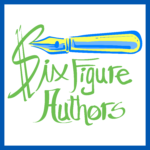For this week’s show, we discuss some of our big-picture writing, publishing, and marketing tips, things we’ve learned over our ten years of publishing. Hopefully, you’ll find some of this advice helpful.
We finished up the show by answering a few of the craft-related questions that we didn’t get to in our craft episode.
News/Links:
- Book Cover Design Marketplace on Facebook
- The StoryBundle NaNoWriMo collection
- David Gaughran’s video on the recent change to Bookbub ads
- Sign-up link for a Google Play Publisher account
Our main topic of writing/marketing/publishing tips and advice:
- Keep your expenses barebones until you’ve made it (and maybe even after).
- Be aware of what your audiences wants and likes, but don’t cater to the whims of the vocal ones.
- Be flexible when it comes to marketing, and don’t doggedly continue doing something that isn’t working well anymore.
- Learn how to see small amounts of progress as inspiring rather than depressing.
- Take a notepad (or notes app on your phone) everywhere, so you can write down ideas as soon as they pop into your head.
- Don’t panic that you’ll miss out on opportunities, and don’t jump on everything that comes by.
- Whether it’s writing or marketing, double down on what you’re good at (as long as it moves the dial).
- Consider keeping a file of abandoned or displaced ideas, and try not to throw away anything that you found interesting or exciting.
- Don’t be dogmatic. Be open-minded. Be willing to put your assumptions aside and try things before assuming they won’t work.
Listener questions:
- How important is the very first sentence of a new book? I’m someone who can rewrite the opening countless times, as the beginning obviously sets the tone, and I feel it can become obsessive to create an “iconic” opening… “Call me Ishmael.”
- What kind of writing style do you prefer? Sometimes it seems that many Indie Writers became obsessed with adjectives, and write sentences like “The cold wind on the gloomy mountains touched her pale skin while she walked the long stony path in her white boots” while writers like Stephen King stick to “simple” (but elegant) sentences – “This happened in 1932, when the state penitentiary was still at Cold Mountain.”
- I’ve had people tell me that my first book grabbed them and kept them reading. I tend to write relatively short chapters (I’ve heard it called potato chip style). I’ve also had people ask why the chapters were so short. Is this just a reader preference thing or is there a rule of thumb to try to shoot for a certain length? (I’m writing YA sci-fi)
- A thought I’ve been having while writing a series of my own – is it better to have one main character that readers follow from start to finish, or can a group of main characters spread the weight between them, particularly over longer series, so each one comes to the fore in different books?
- What do you guys do when your main character turns out to not be likable?
Thanks for listening to the show, and thanks to Joshua Pearson for producing it. Here’s the link if you want to join the Six Figure Authors Facebook group: https://www.facebook.com/groups/504063143655523/

/
RSS Feed
My question is about Bookbub Partners. Do you have to have a Bookbub add before getting a page?
Are there promotion opportunities with a bookbub partner page?
I’m pretty sure you can sign up and get followers and all that on Bookbub even if you haven’t been offered a featured deal.